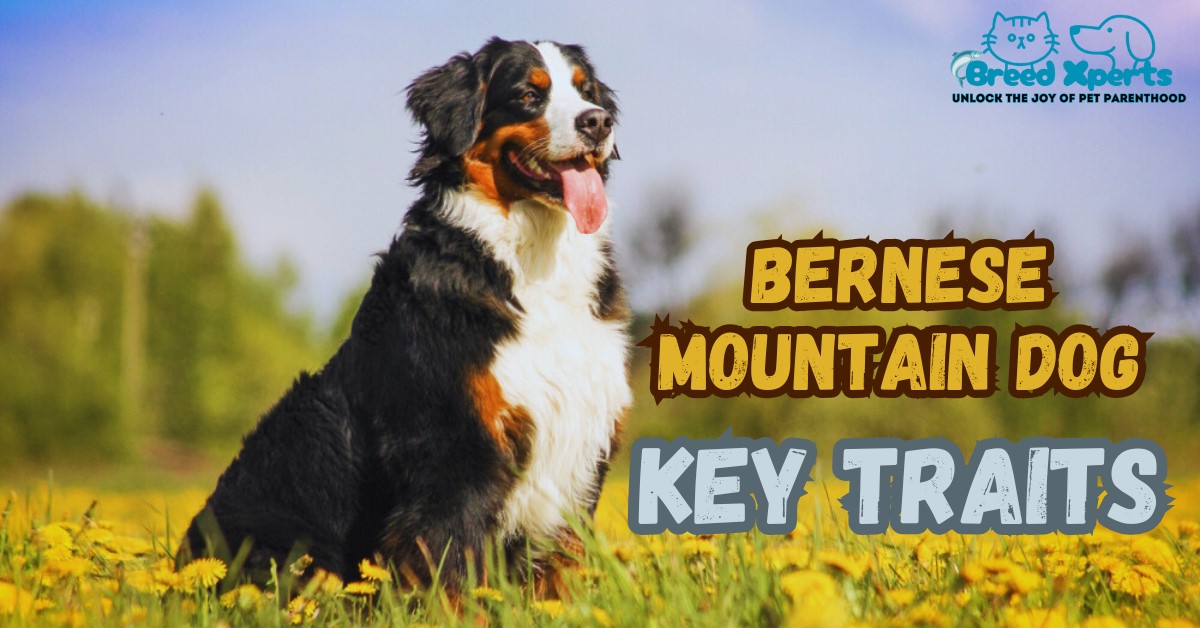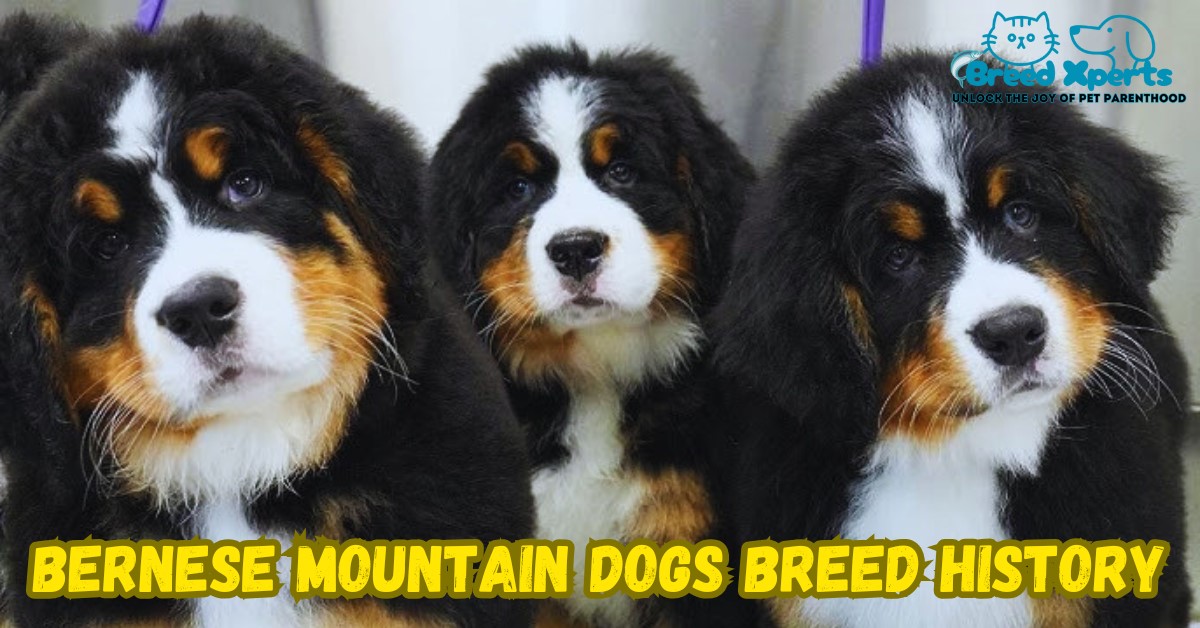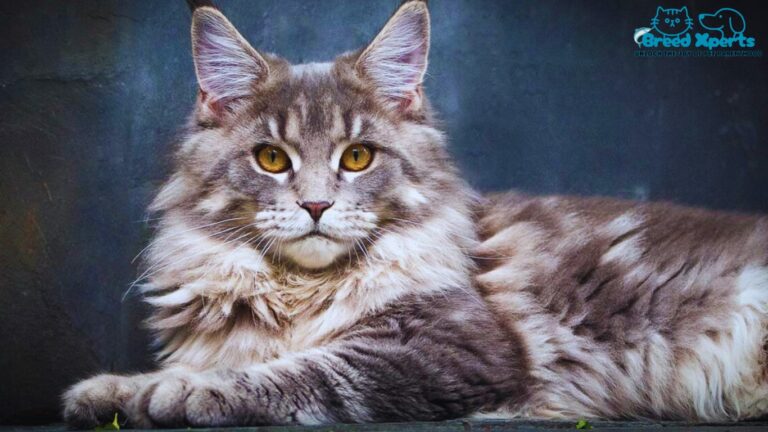Are Bernese Mountain Dogs Good with Kids? (Berners) 10 Fun Facts You Probably Didn’t Know
The Bernese Mountain Dog is a big, friendly, and hard-working breed known for their beautiful tricolor coats. Originally from Switzerland, the breed was created to be useful for the farm’s day-to-day operations; such activities include pulling carts, herding, and farm guarding. Being hardy and dependable makes them great working dogs.
Bernese Mountain Dogs are sweet and gentle. Thus, they can be excellent companions for families because they love being around people and enjoying various activities such as playing, hiking, or simply unwinding at home. They are good with children, and their temperament is very peaceful and calm.
This breed is highly intelligent and has the instinct to please, which means that training can be much easier. Yet, they also respond well to positive reinforcement and consistent guidance. Bernese Mountain Dogs are not only diligent workers but also loyal companions due to their amiable character and striking features. They become the happiest animals in families in which they get a lot of affection, care, and experiences outdoors.

Key Traits:
- Group: Working Group
- Height: 23–27.5 inches (males are generally taller than females)
- Weight: 70–115 pounds (depending on gender and build)
- Personality/Temperament: Gentle, friendly, affectionate, and loyal; they are known for being great with families and kids.
- Energy Level: Moderate; they enjoy outdoor activities like walks, hikes, or playtime but are also content relaxing with their family.
- Coat: Thick, double-layered coat that is medium to long in length and slightly wavy or straight.
- Color: Tri-color, featuring a black base with white and rust-colored markings on the chest, face, and legs.
- Life Span: 7–10 years on average.
Bernese Mountain Dogs are prized for strength, beauty, and many other favorable traits. However, they have a thick coat, so they need to be combed regularly and require lots of love, attention, and outdoor space to thrive.
Are Bernese Mountain Dogs Good with Kids?
Yes, Bernese Mountain Dogs, or “Berners” for short, are great with children! Famous for their soft and affectionate nature, Berners are often referred to as “gentle giants.” Their calm disposition, reliability, and stability make them a perfect choice for family homes with kids.
-
Gentle Nature:
Berners naturally tend to be placid and laid-back, making them less likely to hurt the children while playing accidentally.
-
Protective Instincts:
Devoted and guarding, Bernese Mountain Dogs often form intense bonds with everyone in the family, especially children.
-
Patient Personality:
They are extremely tolerant, even with small children, and tolerate the erratically behaving child sometimes.
-
Playful and Friendly:
Though gentle-natured, Berners are playful dogs that make them perfect companions for rambunctious children.
Nonetheless, just like with any dog breed, it would be wise to monitor interactions between pets and children to ensure the safety and security of everyone. Therefore, primary training and socialization are critical to ensure an amicable relationship.

10 Fun Facts About Bernese Mountain Dogs
-
Swiss Heritage:
Bernese Mountain Dogs are a breed of Switzerland. They were used on farms as canines to herd livestock and to pull carts.
-
They’re One of Four Swiss Mountain Dog Breeds:
Of the four Swiss Mountain Dogs, the Berner is the only breed that has a long, silky coat.
-
Tri-Color Beauty:
The breed’s distinctive tri-color coat, which consists of black, white, and rust, not only makes it beautiful but also defines it.
-
Natural Cart Pullers:
Traditionally, they were used to pull carts carrying goods, and their strength allowed them to carry heavy loads.
-
Huge Size, Huge Heart:
Typically adult Berners run between 70–115 pounds, however the loving attitude keeps making them heart-felt lap dogs.
-
Slow Maturity:
The playfulness in this breed often comes longer than for others, most being slow-growing toward maturity for such a great length of time.
-
Great Hiking Companions:
Their physical nature and general love for all things outside make them great hiking companions, especially in cold places.
-
Short Lifespan:
Sadly, Bernese Mountain Dogs have a tendency to have a relatively short lifespan, typically 7 to 10 years, but their love and loyalty make each minute special.
-
Family-Oriented Dogs:
Berners are high companionship animals and abhor isolation for extended periods. They are happiest when surrounded by family.
-
Movie Stars:
With such outstanding beauty and affectionate nature, Bernese Mountain Dogs appear in films and television ads.
Be you only a new adopter or a well-known owner, these beautiful giant animals will make your family household a house of love and full of pleasure while creating fantastic memories for all.
Breed Overview
The Bernese Mountain Dog is a big, sturdy, and social breed, bred in Switzerland. They were made for farm work, which they did by dragging carts and supervising cattle. They are faithful and responsible companions.
This breed has a reputation for having an extremely calm and gentle temperament. Bernese Mountain Dogs are extremely affectionate and thus great companions for families, especially with children. They love their people and do well in a loving environment.
They are very beautiful and, at the same time, adapted to cold weather conditions with their thick, tri-colored fur. They require regular grooming and moderate exercise for them to stay healthy. Bernese Mountain Dogs are devoted, intelligent, and willing to please, which makes them excellent family companions and working animals.
Diet & Nutrition
A healthy, energetic Bernese Mountain Dog must be maintained with a wholesome diet. Feed premium dog food providing an appropriate combination of proteins, fats, and carbohydrates. Then make sure to obtain dog food developed especially for the needs of the larger breed dogs.
Puppies require a feeding plan to promote sound development. Dog food for large breed puppies helps not develop joint and bone issues. Foods meant for adult dogs should always be about energy needs. Always stick to recommended serving sizes to avoid overfeeding.
Divide their meals into two or three portions per day, so they avoid bloat common in bigger dogs. Make water available at all times. Contact your veterinarian regarding the diet which is suitable to your dog, depending on their age, weight, and condition.
Lifespan
The Bernese Mountain Dog, generally, lives about 7 to 10 years. Their lifetime is shorter in comparison to a great number of other breeds simply due to large size and tendency to certain disorders.
To have an extended life of the dogs, proper care must be undertaken by the owner. Provide proper diet, frequent exercise, and veterinary check-ups. Diagnosing illness in time, sometimes, radically improves the outcome.
Frequent health issues in this breed include hip and elbow dysplasia, cancer, and cardiovascular issues. Responsible breeding practices and regular checks can reduce such risks. Provided with love, attention, and proper care, Bernese Mountain Dogs can live joyful and fulfilling lives with their family.
Size
Bernese Mountain Dogs are big, powerful canines with a robust physique. The males typically range between 25 and 27.5 inches in height, while the females are about 23 to 26 inches tall. Their size gives them strength as working dogs.
These dogs weigh between 70 and 115 pounds, with males usually being heavier than females. For all their size, however, they prove to be gentle and friendly companions for families.
They need large areas to roam around and play. They are not good for small apartments but do well in houses with large yards. Consistent physical activities help to keep them fit and build their strong, muscular body structure. Proper care ensures that they retain the size as an asset rather than a problem.
Habitat
Bernese Mountain Dogs thrive in cooler weather since they have a thick double coat. They were originally bred in the Swiss Alps, and thus well-suited for mountainous or cooler climates with available open spaces.
They need a spacious place for roaming. These breeds are very fond of dwelling in spacious gardens in a residence or in an open countryside. They can live indoors, but they need to be outside every day to make them feel alive and healthy.
Bernese Mountain Dogs do very well in families where they are provided with attention and exercise. They prefer moderate temperatures and should not be left in the sun for extended periods. A shaded, warm outdoor place and regular exercise would be perfect for their health.
Characteristics
Bernese Mountain Dogs are known for their impressive size and distinctive look. They have a dense, tri-colored fur that is black accented with white and rust patterns. Their serene, soft demeanor shows their amiable character.
These dogs are smart and enthusiastic to satisfy. They are devoted and establish deep connections with their families. Bernese Mountain Dogs are wonderful with kids and other animals, which makes them outstanding family pets.
They are large, yet they are quite calm and laid-back. They love the outdoors but are content to just curl up at home with their owners and unwind. Bernese Mountain Dogs have a reputation for being loving, playful, and dependable, making them fantastic companions for the right family.

Behavior and Temperament
Bernese Mountain Dogs have a calm and placid temperament. They are affectionate and friendly and never stop displaying a passion for the presence of their family. They are also known to be loyal dogs.
They tend to be sweet-natured and accommodating. So they can become an ideal friend to children and other animals. This placid temperament does not make them very fun as companions, but early socialization ensures they do not behave like bores when people unfamiliar to them arrive at their house.
Although they are so relaxed inside, Bernese Mountain Dogs enjoy being taken out very often for exercises. They are playful dogs and like staying energetic with the family, but also can easily chill at home. Their gentle nature makes them a great companion for someone who is in search of an attached and loving dog.
Housing
They are perfect to be kept in houses with much space. It is because the Bernese Mountain Dogs are giant dogs that need to move around freely. A house with a garden is ideal for them to play and be active.
Though they can be kept indoors, the Bernese Mountain Dogs need frequent time outdoors. An enclosed garden allows them to roam and get the exercise they needed. Without having much space, the dogs may get bored or anxious.
These dogs tend to flourish where they get as much attention and love as is given to a household member. Even though this breed of dog can thrive even in an apartment, one would want to ensure he gets adequate exercise and mental stimulation. The Bernese Mountain Dog requires a roomy house and much time outdoors.
Substrate
Bernese Mountain Dogs love cool, outdoor environments. Their thick double coat is designed to keep them warm at lower temperatures so they can enjoy walking on grass, dirt, or soft ground. Natural surfaces are very friendly to their paws.
Regarding their living conditions, these dogs prefer areas they can easily access. Whether they are in the park or at home in a yard, areas with soft terrains are favored because they correspond to their sizes and provide comfortable exercise grounds.
Even though Bernese Mountain Dogs are capable of walking on paved or hard ground, they might quickly become fatigued in intense heat. Therefore, one should ensure providing them with the maximum amount of comfort with shaded or grassy spaces. Dense fur makes the dog more susceptible to hot or hard surfaces; therefore, putting them on softer ground helps maintain their well-being.

Breed History
Developed in the Swiss Alps, the Bernese Mountain Dog has been used as a working tool by farmers there. This breed aided them with multiple tasks that included herding livestock, protection of properties, and towing carts. Their serious, robust nature made them great helpers.
For several hundred years, the Bernese Mountain Dog remained essentially unknown outside Switzerland. The breed wasn’t discovered as such outside their country of origin until early 1900. Charm and gentleness made the dogs extremely popular not only as pets but as service animals, too.
The Bernese Mountain Dog is a mixture of ancient breeds, such as the Molossian dogs introduced by Roman settlers in Switzerland, which have been bred over the years for strength, personality, and beauty-a true and devoted friend.
Training and Care
A Bernese Mountain Dog is not hard to train. It is a smart breed and likes to please. Rewards and praise will best encourage this. They can pick up on commands rather quickly but tend to be stubborn at times.
The dogs require socialization, especially during their puppy stage. Introducing the pups to various people, animals, and other surroundings will make the dogs nice and confident. Training them properly with consistency and persistence in good behavior is required.
Since Bernese Mountain Dog has heavy fur one has to spend much time in taking care of its coat. Their fur continuously falls out and, therefore, makes them require being brushed multiple times a week. As for happiness and health, proper exercise, proper diet, and regular checkup by veterinaries are the necessary factors.
Health Problems
Generally, Bernese Mountain Dogs are considered a healthy breed with predisposition to certain health-related problems. There is one big common issue such as hip dysplasia in the hip, when it did not develop well and usually resulted in arthrosis and soreness during growing years.
Other is elbow dysplasia that can affect the elbow joint, thus causing lameness. It also affects more significant breeds such as the Bernese Mountain Dog. These are some of the issues that regular veterinary checks help detect early on.
Unfortunately, the Bernese Mountain Dogs are more prone to certain cancers such as lymphoma, though it is a big concern. Still, proper detection and treatment increase their chances of recovery. Proper care, a good diet, and regular exercise help control these health risks and improve their general well-being.
Appearance
Bernese Mountain Dogs are big, muscular canines with a solid body build. They have a broad head, hanging ears, and bright dark brown eyes. The thick, tricolor coat provides them with a striking appearance.
The majority of the coat is black with white markings on the chest, face, and paws. Their legs, cheeks, and space over their eyes feature a rusty brown tone. These distinctive colors enable people to easily spot them.
Predators
Bernese Mountain Dogs are strong and large, which helps them protect themselves against predators. However, wolves and bears can be a threat in the wild. Their thick coat offers some protection when attacked.
In rural areas, coyotes may view smaller Bernese Mountain Dogs or puppies as prey. Dog owners must keep an eye on their pets in areas where predators are common to ensure their safety.
To stay safe, Bernese Mountain Dogs usually rely on their instincts and bark to protect themselves from threats. These dogs are naturally observant and alert to defend so can be good guardians. Proper education and strong boundaries prevent dangerous exposure.

Population
Because of their attractiveness as family pets, the Bernese Mountain Dogs have been on the rise over the years. They are a friendly breed, which is the reason why they are preferred by many homes in the world.
In some regions, breeders make sure that these breed dogs possess good health status and good quality breeding. This makes them multiply the population and not reproduce the genetic problems. Similarly, adoptive programs help in finding homes for the dogs.
Although their population is stable in many regions, responsible breeding practices remain important. Providing proper care and preventing overbreeding contribute to maintaining a healthy population of Bernese Mountain Dogs. Knowledge about their needs promotes better ownership and sustained well-being.
Reproduction/Breeding
Bernese Mountain Dogs typically breed when they reach 18-24 months of age. Female dogs breed litters of between 6 to 9 puppies. Proper care during pregnancy ensures puppies and the mother are healthy.
Selective breeding focuses on picking healthy individuals to avoid inherited conditions. The periodic checkup on any health condition like hip dysplasia and heart issues allows for improvements in the quality of the Bernese Mountain Dog breed.
Owners have to ensure a safe and clean environment during breeding. The puppies need good nutrition, vaccination, and early socialization. Ethical breeding practices promote the development of puppies into healthy and happy dogs ready for loving families.
Pros & Cons as a Pet
Bernese Mountain Dogs are great companions because of their friendly, gentle nature. They are great with children and other pets. Their steadfast loyalty and calm temperament make them a great pet for any family.
However, the size of these pets is large, which is challenging for some owners. They require space to roam and move around freely and comfortably. These dogs shed heavily, and frequent grooming is required to keep their dense coat in excellent condition.
Further Research
Additional Bernese Mountain Dogs studies can improve their health and lifespan. Scientists are studying genetic diseases, including hip dysplasia and cancer, to develop new therapies. The research is beneficial for the breed and dog owners of the world.
Specialists also study ways of enhancing their care and training. Studies on their habits and exercise needs enable the masters to have an idea of how to ensure the happiness and well-being of these dogs. This research encourages better pet ownership.
In addition, breeders ensure that the breed is maintained in good quality through responsible breeding methods. Through research on the best breeding practices, they reduce health problems and promote general well-being. Further studies will bring a brighter future for Bernese Mountain Dogs and improve their relationship with humans.
Interesting Facts
Bernese Mountain Dogs have their origination in Switzerland. They were initially used as farm dogs. They helped to pull carts, herd cattle, and protect farms. Their robust built and persistent temperament made them an asset for farmers.
The three-colored fur is something that every dog is known for. The coat is thick and resistant to the weather to be adopted at low temperature conditions. Though they are heavy, they are gentle and affectionate with families.
An interesting fact is that Bernese Mountain Dogs mature slowly. They may even preserve their playfulness and puppy dog character until they are 2-3 years old. This fact, along with loyalty, makes for excellent, loving companions.
FAQ:
Is Bernese Mountain Dog a good family dog?
Bernese Mountain Dogs are known for their friendly and affectionate nature, making them excellent family pets. They work particularly well with children, who are patient and tolerant. Their calm nature combined with their loyalty makes them a perfect choice for families seeking a big, social dog.
Why are bernese so expensive?
Bernese Mountain Dogs are quite expensive to raise due to their size, grooming needs, and potential veterinary care associated with the breed’s predisposed health issues. Adopters should consider these factors along with the adoption fee when deciding to bring a Bernese Mountain Dog into their lives.
What is the purpose of the Bernese Mountain Dog?
Initially, the Bernese mountain dog was an adaptable farm dog, where it herded cattle, watched the farm, and carried milk back to the dairy. The name Bernese mountain dog originates from the German word berner sennenhund, meaning the Bernese Alpine herder’s dog.
What is the biggest dog in the world?
English Mastiffs
The Great Dane is generally regarded as the tallest breed, though Irish Wolfhounds and English Mastiffs are pretty stiff competition. In terms of height and weight, no one will argue the Mastiff’s claim!
Can Bernese mountain dogs live in hot climates?
Makes for a calm and mannerly family dog. Requires daily exercise via a brisk walk or light jog. The Bernese mountain dog enjoys cold weather, but does poorly in warm ones.
Which dog is most costly?
Tibetan Mastiff
Accordingly, the price of a purebred Tibetan Mastiff puppy ranges between $2,000 and millions. Absolutely, countless! In 2014, a Chinese entrepreneur spent $1.95 million on a Tibetan Mastiff puppy, setting it as the world’s most expensive dog.
Are bernese high maintenance?
Bernese Mountain Dogs can be considered high maintenance in terms of grooming due to their thick coats that shed very much, yet they tend to be quite gentle and loving, making them wonderful family companions.
What is the lifespan of a bernese dog?
A Bernese Mountain Dog has an average lifespan of around 7 to 10 years enough for a big breed dog, by and large. While they are considered an overall healthy breed, they can be susceptible to some health issues.
What is the most expensive German shepherd?
“Julia,” German shepherd ($230,000)
In June 2011, millionaire John Johnson sought this when he purchased Julia, a German Shepherd trained as a “protection dog” by a trainer previously supplying dogs to Seal Team 6 and British Special Forces.
How popular is Bernese Mountain Dog?
They’re a Popular Breed
According to AKC registration data, the Bernese Mountain Dog is among the top 20 breeds of more than 200 breeds.






